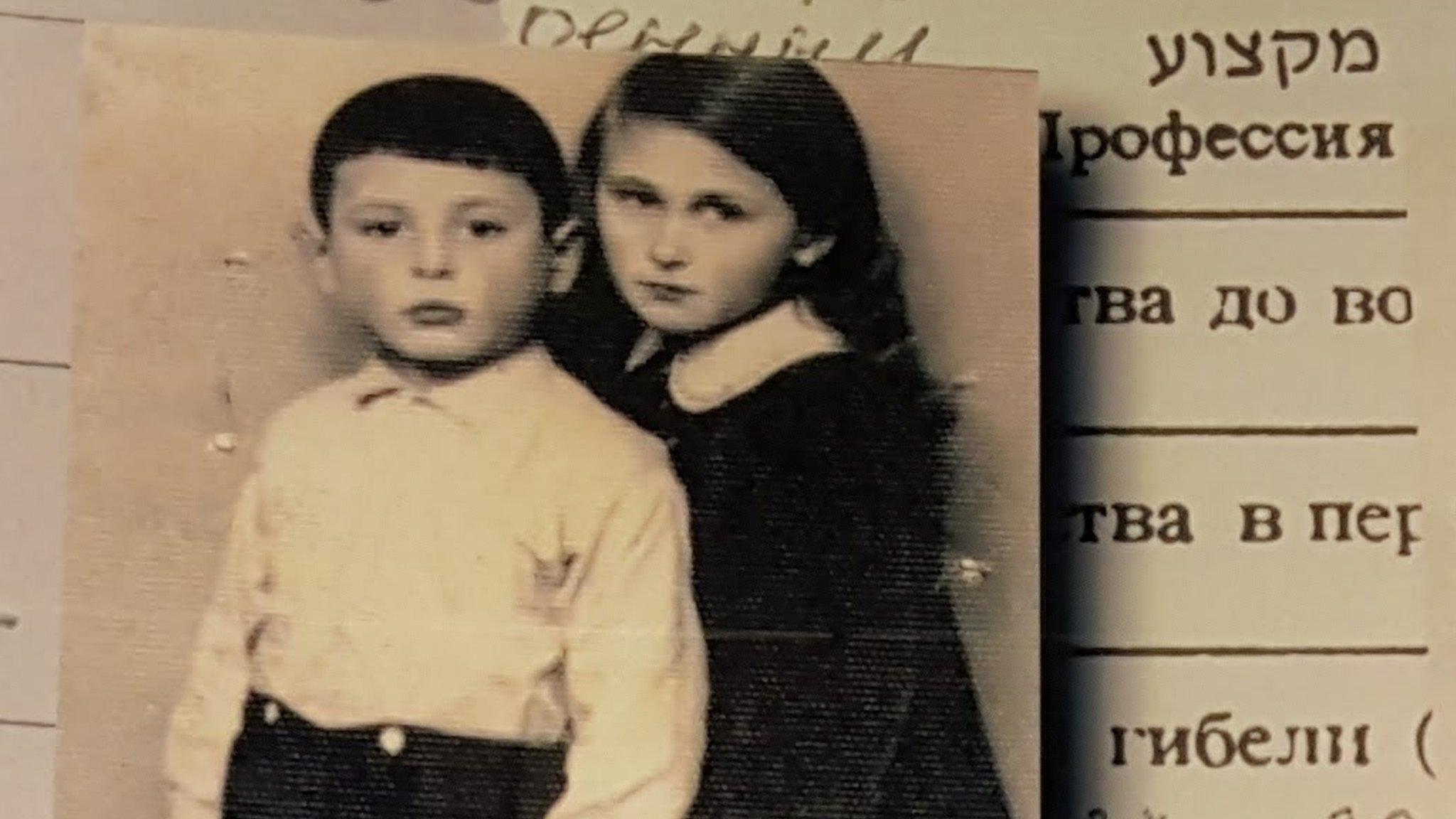Holocaust row seethes as leaders gather in Israel
- Published
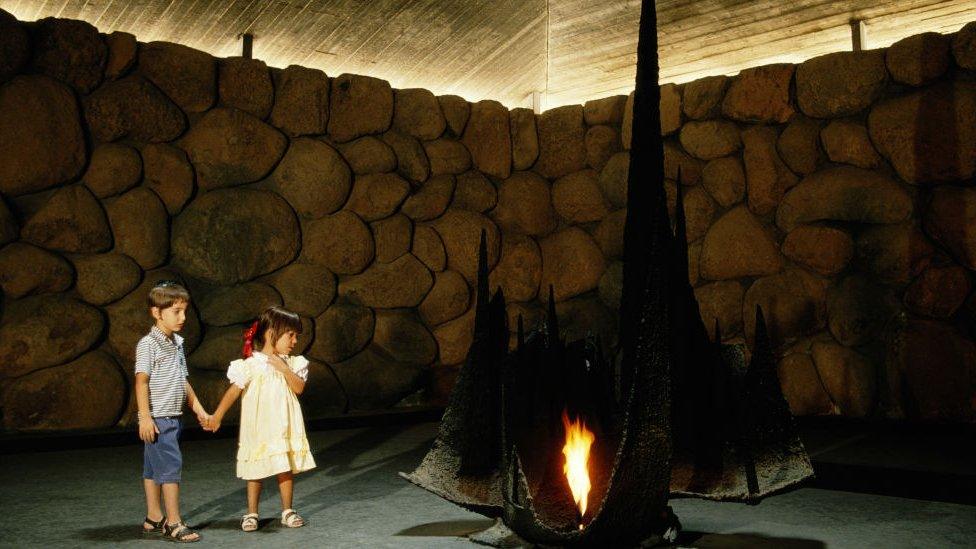
One of the biggest events marking Holocaust Memorial Day is being held at Yad Vashem
Peter Feuerman's birth certificate showed nothing of his real background.
His Jewish parents escaped from the Warsaw Ghetto while his mother was pregnant with him during the Nazi occupation of Poland.
The couple survived only after being smuggled into a gardener's building at the home of a contact they had made in the Polish underground.
Dr Feuerman was born in 1944 with what he described as "false so-called Aryan documents" to hide his Jewish identity.
His parents escaped before the Nazis demolished the ghetto, where at its height an estimated 400,000 Jews were trapped inside a 3.4 sq km (1.3 sq mile) area. Most were murdered at death camps or died of starvation or disease, among up to 3 million Polish Jews murdered by the Nazis.
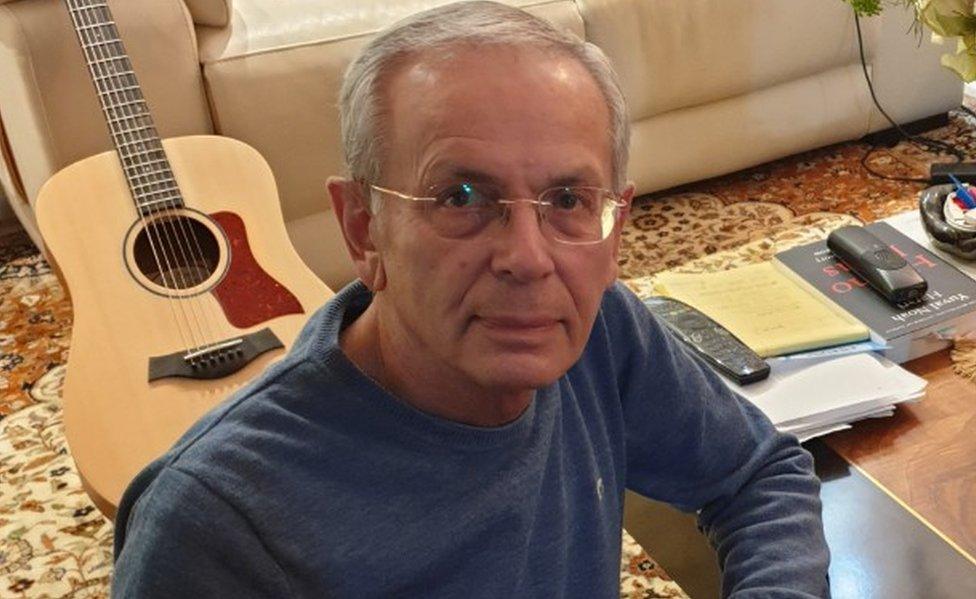
Peter Feuerman's parents escaped the Warsaw Ghetto while his mother was pregnant with him
Now he speaks of a "political game" over the legacy of the Holocaust - because as he nears his 80s the stories of mass murder and survival from the start of Feuerman's life are at the centre of a row about the distortion of history by rival nationalist leaders in Europe.
Foreign guest list
I sat down with Dr Feuerman and other Holocaust survivors and Polish Jews born soon after the war, as they met for their weekly get together at a cafe in Tel Aviv.
They ordered coffees but some sipped vodka and the talk turned to the Polish President Andrzej Duda.
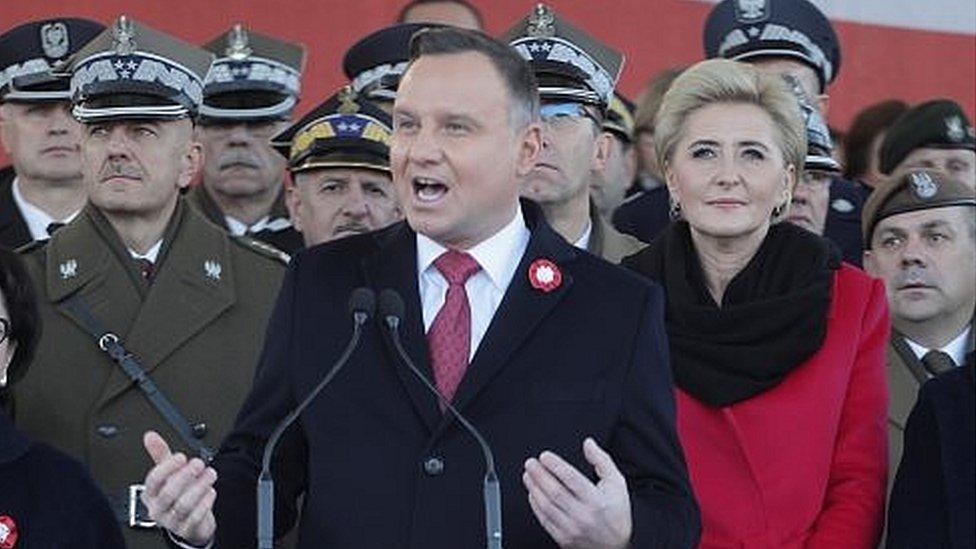
Polish President Duda is snubbing the ceremony in Jerusalem
Mr Duda has said he will not attend this week's Holocaust remembrance ceremony at Yad Vashem, the official memorial centre in Jerusalem.
His decision has threatened to overshadow the event which will bristle with world leaders and bring parts of Jerusalem to a standstill.
It marks the 75th anniversary of the Soviet liberation of the Auschwitz death camp in Poland. More than a million people, mostly Jews, were murdered by the Nazis at Auschwitz.
'A responsibility that does not end' - Merkel
The event is one of the biggest political gatherings in Israel's history - President Macron of France, US Vice-President Mike Pence and Britain's Prince Charles are due to speak.
It will also focus on fighting anti-Semitism today, taking place four days before the annual remembrance service at Auschwitz itself, hosted by Poland.
'Weaponising' history
The Jerusalem event was organised by the World Holocaust Forum Foundation, whose founder Dr Moshe Kantor is close to Russia's President Vladimir Putin.
Mr Duda complained that he has not been allowed to address the audience, whereas Mr Putin and other leaders will speak.
He has also questioned why it is taking place at all, saying the "main event" will happen in his country - which Mr Putin in turn will not attend.
"What a wonderful thing it is to know that you're alive"
Yad Vashem says it reserved the speaking podium for the allied powers that defeated Nazism - although Germany's president will speak too - while the Israeli government is trying to distance itself from the row, with one official telling me the invitation for Mr Duda to attend "still stands".
It has aggravated a bitter dispute between Russia and Poland - whose leaders have been armflexing over the war's legacy.
Mr Putin claimed recently that Poland was complicit in the outbreak of World War Two, and while excusing Russian dictator Stalin's early pact with Hitler he described Poland's 1930s ambassador to Nazi Germany as "a scumbag and an anti-Semitic pig".
Poland's Prime Minister Mateusz Morawiecki responded with a furious four-page statement accusing Mr Putin of lying about Poland and "trying to rehabilitate" Stalin for his political goals today.
Now the rival leaders stand accused of weaponising history.
Nationalist agendas
World War Two has become "the most important battlefield" for Poland's nationalist government, according to Prof Paweł Machcewicz, a Polish historian.
"The goals they declared were to use history as a tool to strengthen the community… by focusing on mostly glorious, heroic elements of Polish history," he says.
Supporters of Poland's ruling Law and Justice party argue the war's devastating cost there is too often overlooked. Up to 1.9 million non-Jewish Poles were killed by the Nazis.
Auschwitz: Drone footage from Nazi concentration camp
Polish resistance and suffering in the war were unquestionable, says Prof Machcewicz - but he believes both the Polish and Russian governments are distorting history to appeal to their nationalist bases.
Two years ago the Polish government made it illegal to say that the country was complicit in Nazi crimes during the Holocaust.
After an international outcry it later deleted parts of the law, but the controversy then engulfed Israel's Prime Minister Benjamin Netanyahu.
He supported the partial u-turn by signing a joint statement with the Polish prime minister.
That move was condemned by Yad Vashem who said the statement contained "grave errors and deceptions" and harmed the "historical memory of the Holocaust".
Mr Netanyahu defended his move saying he had consulted Yad Vashem's chief historian.
'Betrayal of the Holocaust'
But among his critics was the Israeli historian Prof Zeev Sternhell, a Jewish survivor of the Holocaust in Poland who escaped the Warsaw Ghetto as a child with the help of two Polish families.
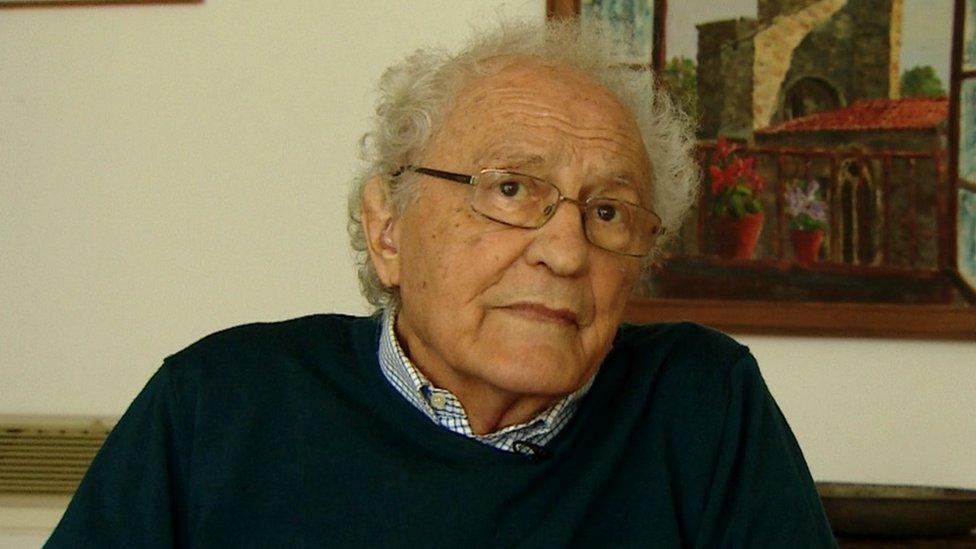
Prof Zeev Sternhell is critical of Israel's relations with right-wing parties in Europe
He accuses Mr Netanyahu of embracing ultra-nationalists in Europe because they provide a counterweight to the EU's "liberal wing" of France and Germany who are critical of Israel's occupation of the Palestinian Territories.
"In order to get that alliance working he's ready to pay a heavy price… And the heavy price is a betrayal of the Holocaust," he says.
Either way, the feeling for some back at the Tel Aviv cafe is that this year's commemorations have become more about today's politicians than yesterday's crimes.
- Published5 January 2020
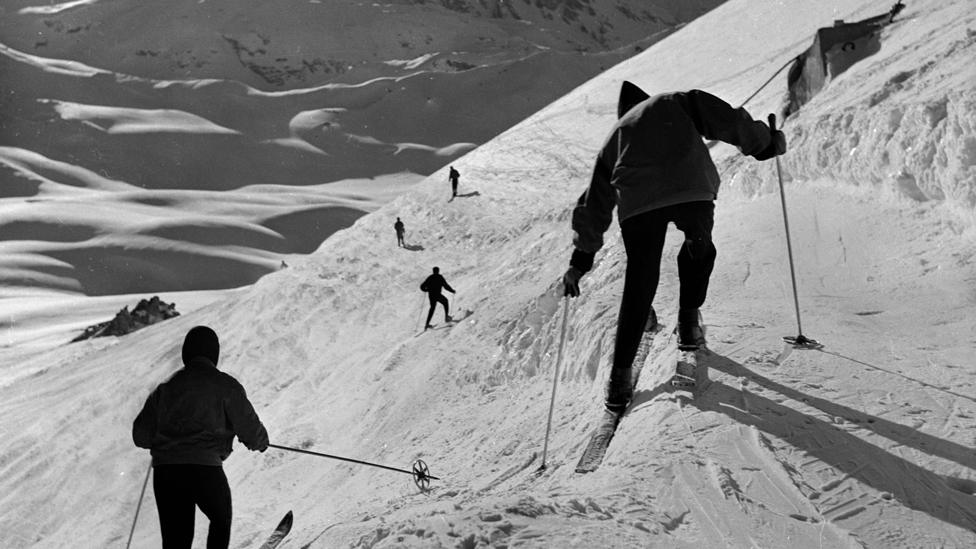
- Published6 December 2019
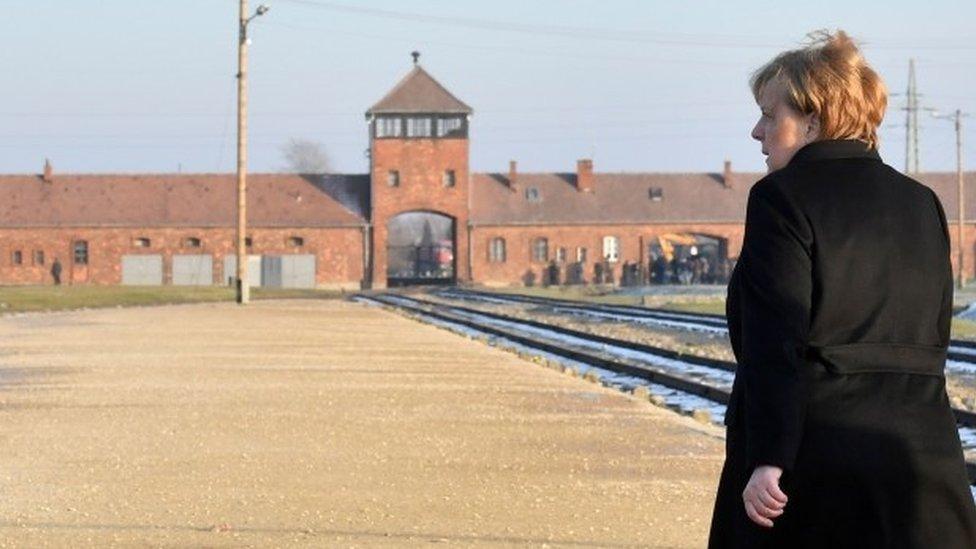
- Published12 November 2019
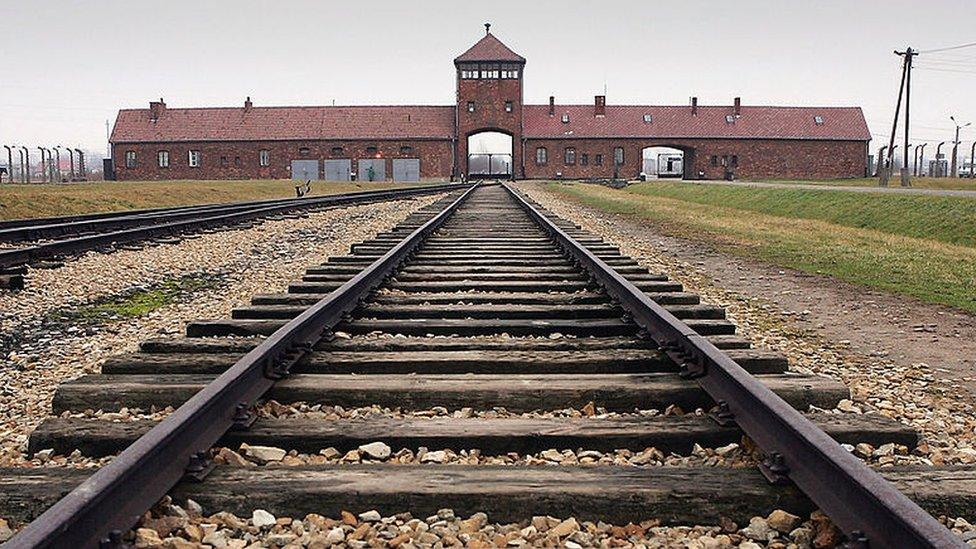
- Published23 June 2019
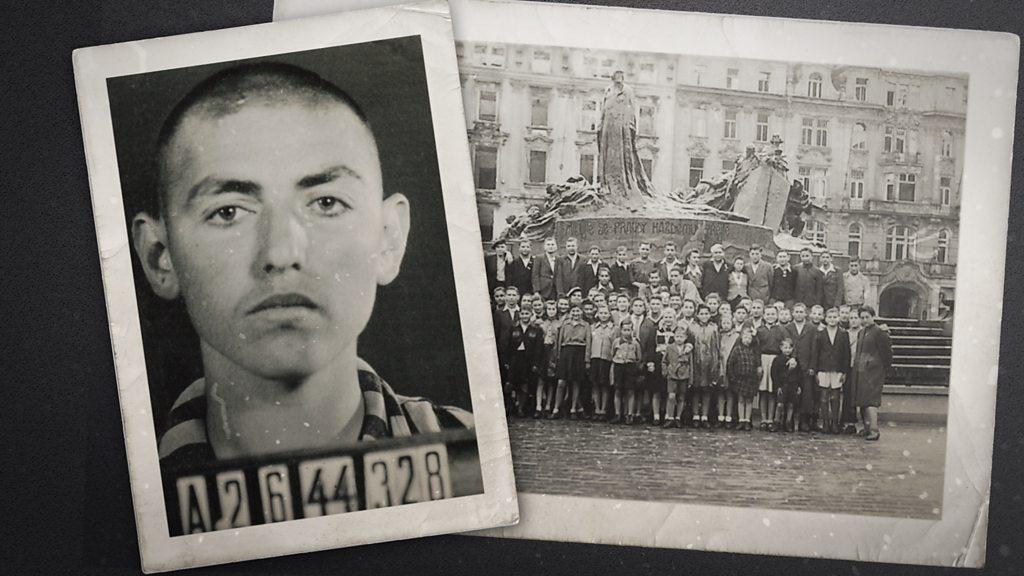
- Published23 June 2018
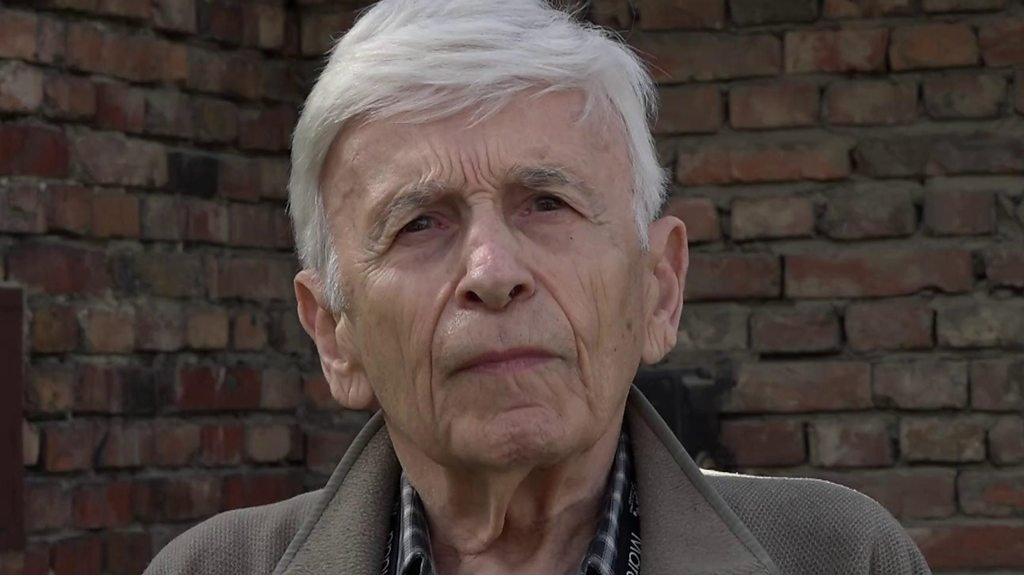
- Published24 April 2017
